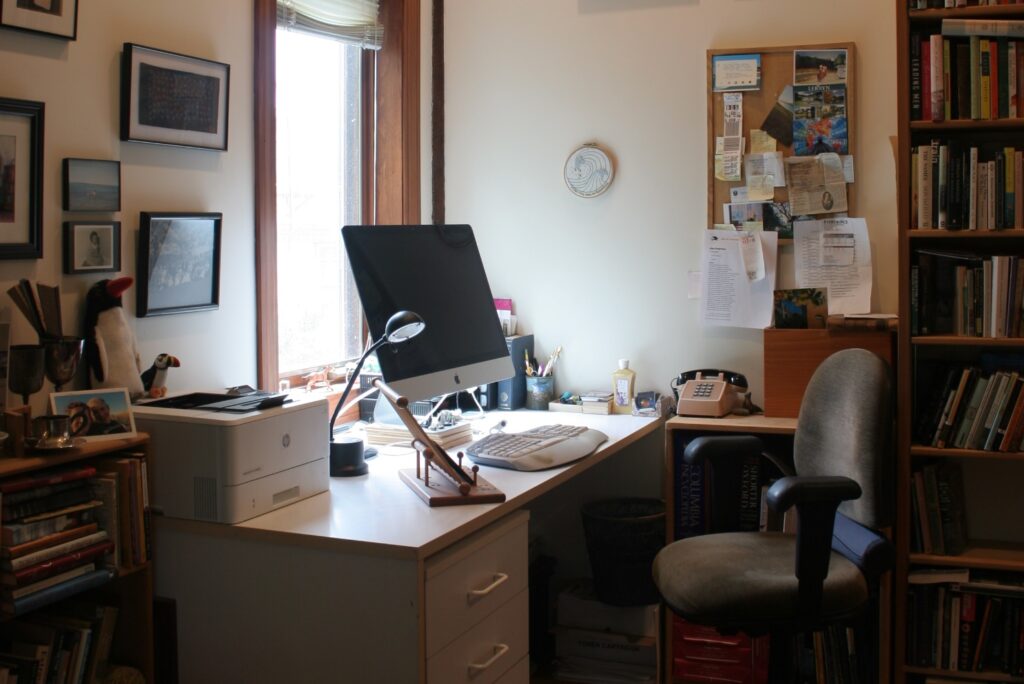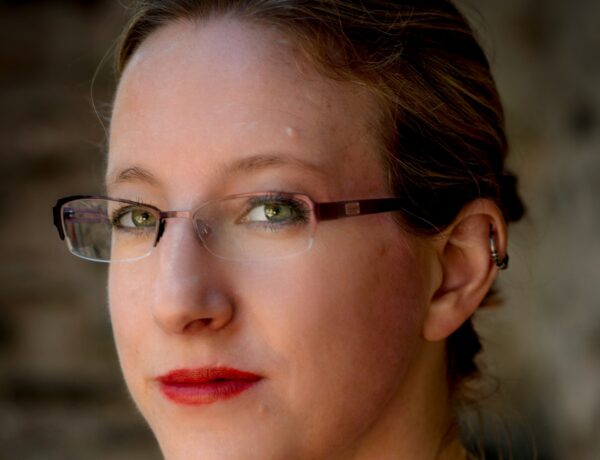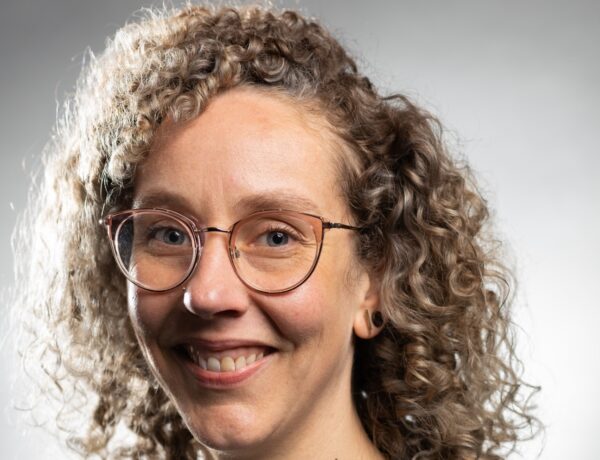Margot Livesey grew up in a boys’ private school in the Scottish Highlands where her father taught, and her mother, Eva, was the school nurse.
After taking a B.A. in English and philosophy at the University of York in England she spent most of her twenties working in shops and restaurants and learning to write. Her first book, a collection of stories called Learning By Heart, was published by Penguin Canada in 1986.
Since then Margot has published eight novels: Homework, Criminals, The Missing World, Eva Moves the Furniture, Banishing Verona, The House on Fortune Street, The Flight of Gemma Hardy, and Mercury. Her ninth novel, The Boy in the Field, will be published in August 2020 by HarperCollins in the US and by Hodder & Stoughton in the UK. The Hidden Machinery, a collection of essays on writing, was published by Tin House Books in 2017.
Margot has taught at Boston University, Bowdoin College, Brandeis University, Carnegie Mellon, Cleveland State, Emerson College, the Iowa Writers’ Workshop, Tufts University, the University of California at Irvine, the Warren Wilson College MFA program for writers, and Williams College.
She has been the recipient of fellowships from the Guggenheim Foundation, the N.E.A., the Massachusetts Artists’ Foundation and the Canada Council for the Arts. Margot is currently teaching at the University of Iowa Writers’ Workshop. She lives with her husband, a painter, in Cambridge, MA, and goes back to London and Scotland whenever she can.
Each week, we publish a new daily writing routine from a famous author. Subscribe to our newsletter so you don’t miss out!
Hi Margot, we’re excited to have you here with us today to talk writing routines. For those who may not know, can you please tell us a little bit about yourself?
I grew up in the grounds of a boys’ private school on the edge of the Scottish Highlands. My father taught mathematics and geography but his bookshelves were filled with novels and I was allowed to read whatever I could reach: Evelyn Waugh’s Decline and Fall, and T.E. Lawrence’s The Seven Pillars of Wisdom were particularly thrilling and baffling. I couldn’t attend the school and travelled back and forth every day to a girls’ school in the town ten miles away.
After my mother, father and step-mother died, I adopted the family of another master who taught at the school. Roger taught English and was a passionate reader and teacher. He encouraged me to go to the University of York in England where F.R. Leavis, the great critic, still held seminars.
I read my way through university but the curriculum ended when Virginia Woolf walked into the River Ouse in 1941. I had no sense that such authors as Doris Lessing and Margaret Drabble inhabited the same planet as I did. But this didn’t stop me from writing a very bad novel the year after I graduated.
I spent a number of years waitressing and writing stories, trying to figure out how to get better. Eventually some of the stories got published and I started teaching in a very adjunct position. Since then I’ve written a collection of stories, nine novels and a book of essays about writing. I now teach at the Iowa Writers’ Workshop.
I’m curious about how your teaching informs your own writing, and vice versa. Do you find that each role creatively energises the other?
I am fortunate to have terrific students at the Iowa Writers’ Workshop; our vigourous, opinionated discussions are always opening new doors in my brain. When I turn back to my own work I find myself repeating what I’ve said in class, or what one of my students has said. There is a vivid sense of shared endeavour.

Can you take us behind the creative process for your novel, The Boy in the Field?
A number of years ago I met a man who’d grown up in the same part of Scotland. He told me about the day he’d come home from high school, on a sunny afternoon, and found the body of a young woman who’d been murdered in the garden. Those few seconds changed his life.
I was at work on a novel but his account lodged in my brain and in 2017, after I published Mercury, I sat down and began The Boy in the Field. I knew I didn’t want another dead woman, or fatal crime in my novel, and I knew I wanted to explore the aftermath of witnessing something traumatic in the lives of three siblings. I was also interested in nodding towards the detective novel and how the detective enters a world of crime and restores order.
What does a typical writing day look like for you?
A typical day usually begins with reading and coffee for perhaps twenty minutes. Then I try to head directly to my writing room where I type on a computer that has never gone online. To look up anything, I have to go downstairs and use my laptop. I try to work from around eight until noon. If I get stuck, I read the dictionary or a thesaurus or sometimes poetry. Or I reread my pages.
Do you have a target word count or a certain amount of hours of writing that you like to achieve each day?
It depends what phase of a novel I’m in. When I’m building the novel, I often aim for a certain number of words, usually 1,000 a day. As I get further along, the word count usually goes down. Virginia Woolf said that all one needs to do is find the rhythm of a novel and everything else follows. I’m not sure that’s quite true but I am increasingly aware of how much the rhythm, and the level of detail, determine what’s possible.
If you could give just one piece of advice to a writer trying to get published, what would it be?
I would quote the late Carol Houck Smith, a wonderful editor at W.W. Norton. She used to tell aspiring writers to write something publishable. I’d add that for me the big question of a novel is to figure out what interests me and then to try to make it interesting to other people.
Can you describe what your writing workspace looks like?
My husband’s studio is on the ground floor of our house and my writing room is on the top floor. It’s a large room with a window overlooking our neighbours’ verdant garden and a junky desk I bought when I got my first adjunct job.
I have a wall of family photographs and bookshelves which never seem spacious enough. Watching over me is a silver horse’s head made by my friend Gail to celebrate the publication of my novel Mercury. In Greek mythology, Mercury is the messenger god. His job also involves mediating between the living and the dead.

Before you go…
Each week, we spend hours upon hours researching and writing about famous authors and their daily writing routines. It’s a lot of work, but we do it out of our love for books and learning about these authors’ creative process, and we certainly don’t expect anything in return. However, if you’re enjoying these profiles each week, and would like to send something our way, feel free to buy us a coffee!



No Comments